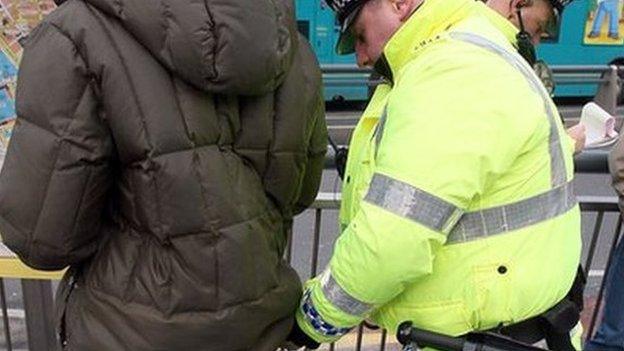London 2011 riots: Stop and search change 'led to knife crime'
- Published
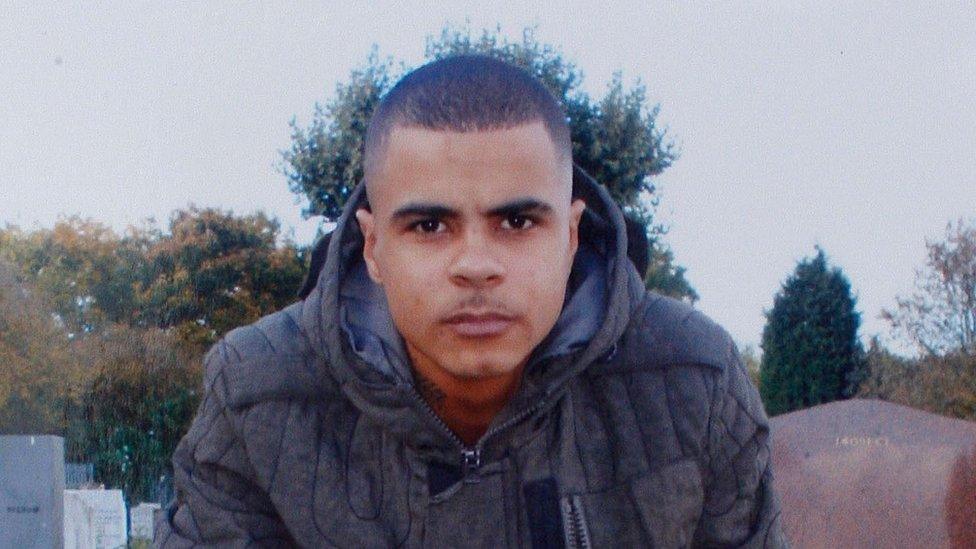
Mark Duggan's death by the police when they stopped a car he was travelling in sparked riots across the country
It is "highly likely" a drop in police stop and search usage has led to a rise in knife crime in London, a government advisor appointed following the 2011 riots has said.
Simon Marcus, of the Riots Victim and Communities Panel, said there was still "insufficient deterrent to gang crime".
In the last two years knife crime in the city rose by 16% while stop and search decreased by 41% in a year.
A Met spokesperson said the rise could not be "connected to a single reason".
The riots started following the fatal shooting of Mark Duggan by police in Tottenham exactly five years ago.
He had been travelling in a car that was stopped by officers on suspicion its occupants were on the way to commit a crime.
The riots started in north London but then spread across the country, causing widespread damage. Three people died.
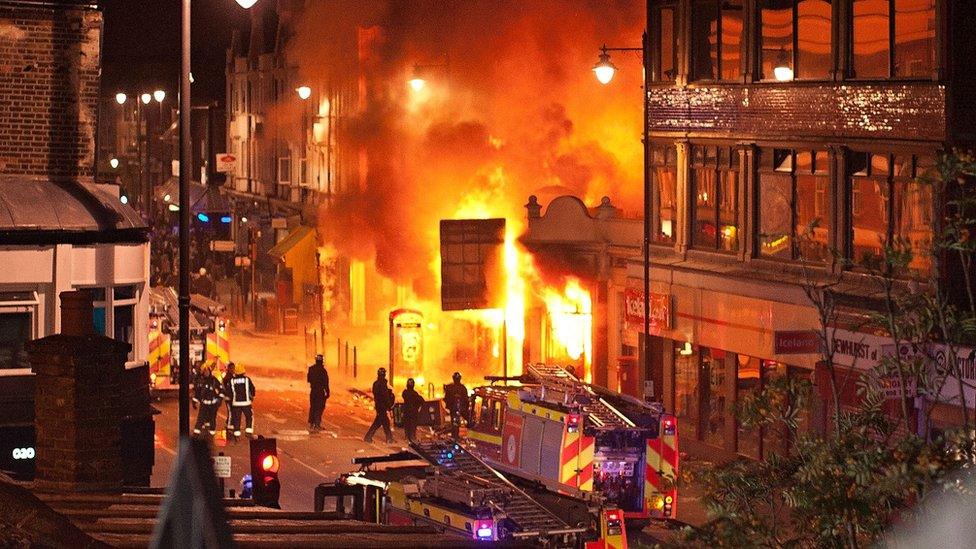
The protest against Mark Duggan's death caused damage in places including Tottenham High Road
The Riots Victim and Communities Panel recommended, external the Met improve success rates and satisfaction levels in their use of stop and search.
The government set up a consultation on how police forces carry out that power and in 2014, the then Home Secretary Theresa May overhauled it, saying it was being misused by police forces which damaged relations between the public and police.
Figures at the time showed only about 10% of more than a million searches led to an arrest.
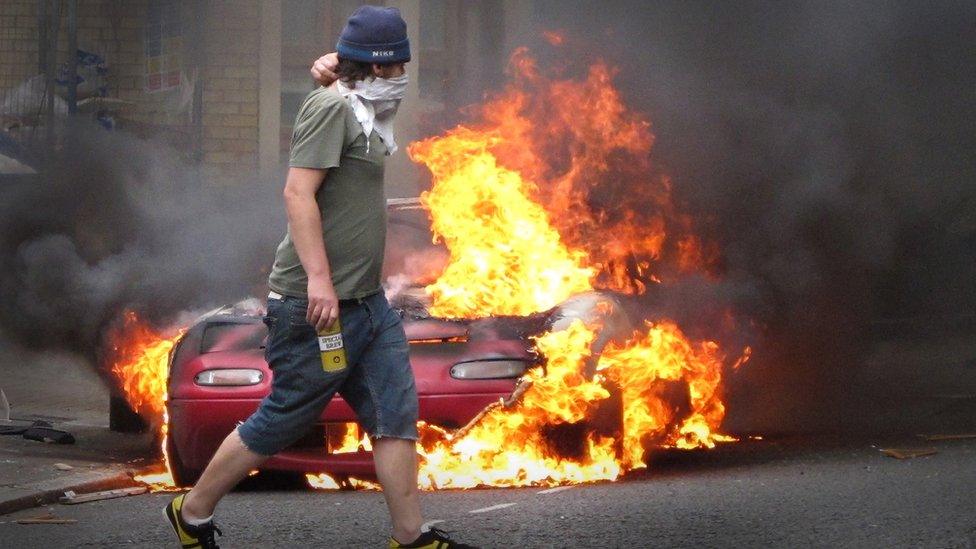
A masked man walks past a burning car outside a Carhartt store in Hackney
From April 2014 until March 2015, there were 171,504 searches carried out by police officers - a drop of 41% on the previous year which saw 289,187 searches.
Knife crime incidents have risen from 1,336 in January 2014 to 1,660 in June, while gun use rose from 306 to 410, Mayor's Office for Policing And Crime said.
'Branded racist'
Mr Marcus said: "Hardened repeat offenders often don't spend long in prison and with reduced stop and search the chances of getting caught with a gun or a knife are low.
"Despite improvements in education, too many kids aren't taught basic values or right from wrong, and there are too many absent fathers.
"There is also a fear among the police of being branded racist which hasn't helped cut crime, but has lowered morale."
He added: "We all know there are problems and the fight against racism must never stop but in any community you need a deterrent and stop and search is a deterrent."
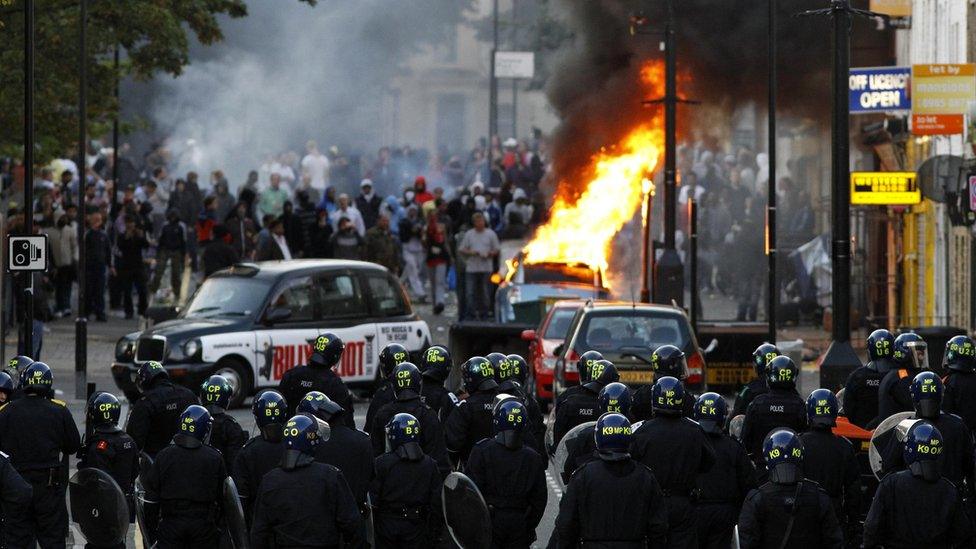
Police officers in riot gear block a road near a burning car on a street in Hackney, east London
Ken Marsh, vice-chairman of the Met Police Federation, agreed.
"There are concerns that we are being constantly branded with a racism ticket that is so out dated," he said.
"We need to address it and change the way people think about this."
On knife crime, he said: "The best thing is for officers to put hands in pockets, to search people.
"If the community know that, they're less likely to carry knives if they think they haven't got impunity."
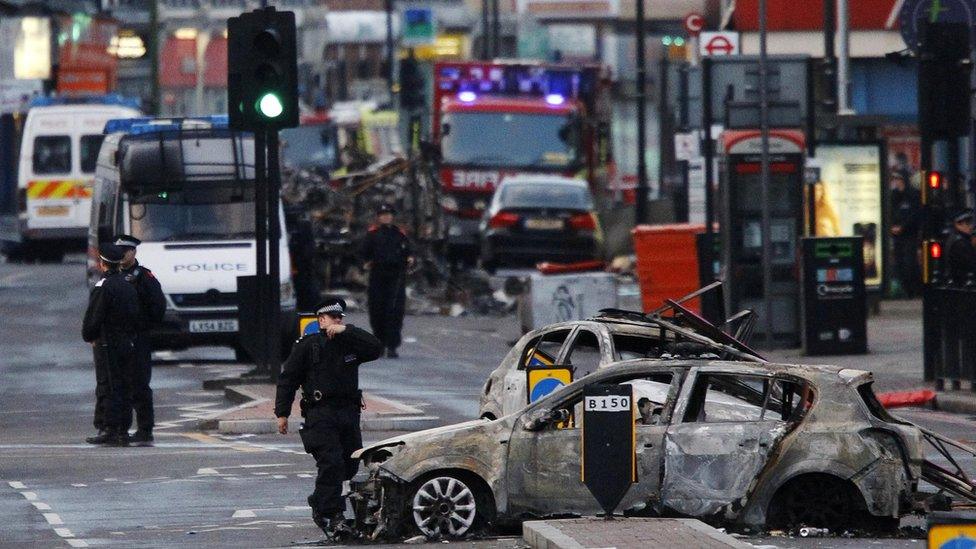
Police investigate the aftermath of the riots in Tottenham
But Dr Kehinde Andrews, an associate professor in sociology at Birmingham City University and the founder of the Organisation of Black Unity, said stop and search was still a contentious issue and black people were still disproportionately targeted.
"Stop and search in any black community is still something to complain about as it is disproportionate. It is still a huge problem," he said.
"You're not going to stop the problem [of knife crime] as these areas have been hit by austerity extremely hard," he added.
Stafford Scott, co-ordinator of the campaign group Tottenham Rights, agrees.
"Stop and search has been used as a blunt instrument to harass the community," he said, adding that although there had been a significant drop in searches carried out in parts of London, this has not happened in Haringey.
"The issue about stop and search is police have created a matrix, a list of people they say are gang related, and they're the ones they stop and search.
"If knife crime is more, then it means police are focussing on the wrong people and the list isn't helpful and is not working. There's a lack of intelligent intelligence-led policing."
He said it was "absolute rubbish" that officers were concerned about being seen as racist.
"Some are being stopped four to five times in one day and while police are focussing on that person, others feel free and empowered to go about and carry out unlawful acts underneath the eyes of the police," he added.
A Met spokesperson said stop and search remained a "hugely important police power" taking more than 3,000 weapons off the streets in 2015.
In a statement the Met said: "A rise in knife crime cannot be connected to a single reason. We are aware of anecdotal evidence that a rise in knife crime in London is linked to a reduction in the use of stop and search, however a definitive causal link has not been identified at this time."
- Published13 July 2016
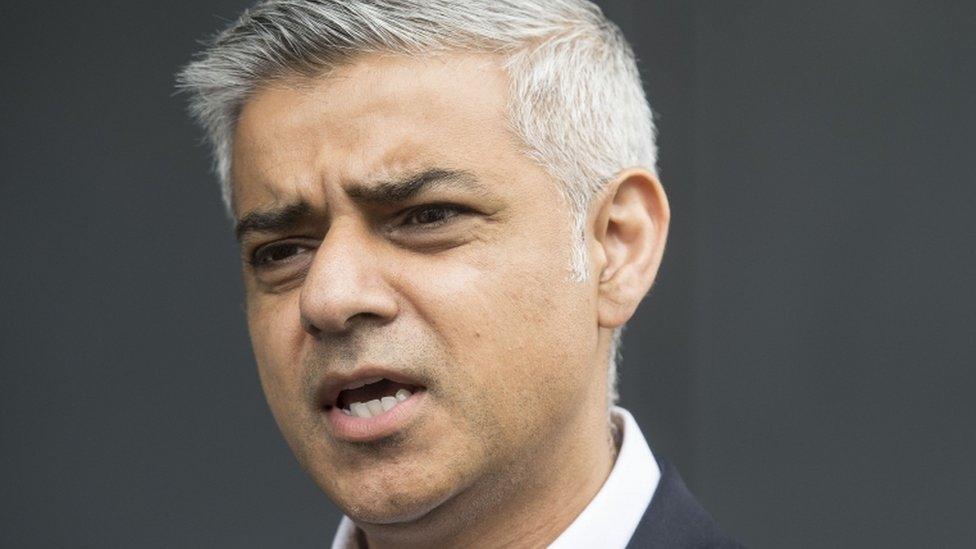
- Published30 May 2016
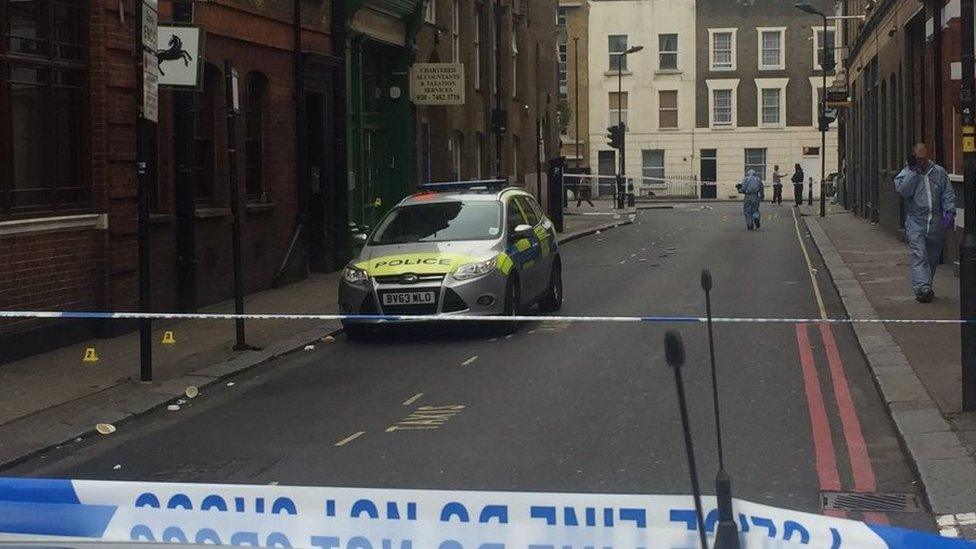
- Published27 July 2016
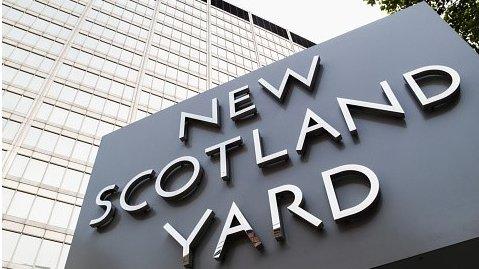
- Published22 October 2015
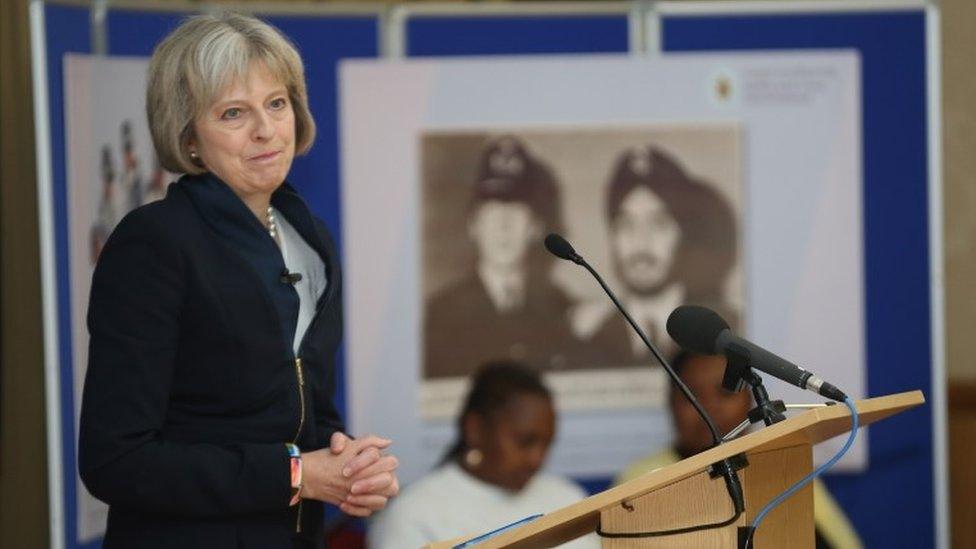
- Published26 August 2014
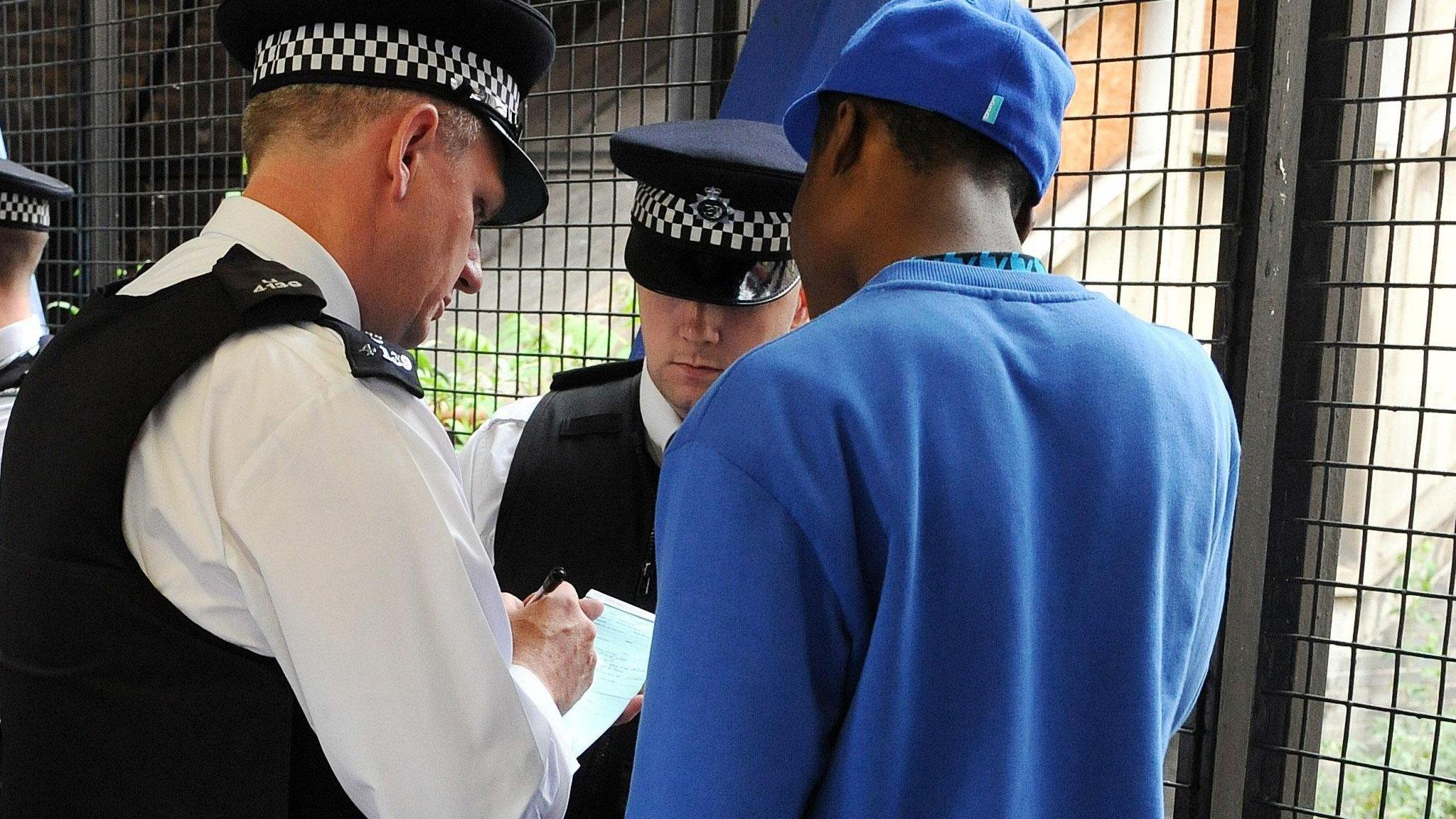
- Published30 April 2014
